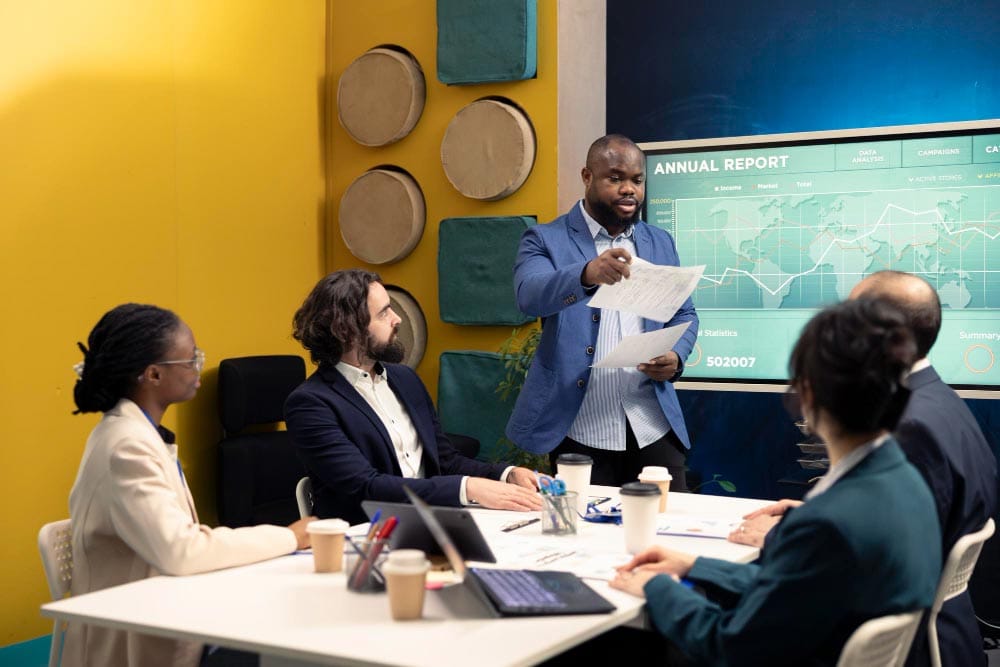
The Future Is Now: 8 Capabilities African L&D Leaders Must Master to Drive Business Growth
The African workplace is undergoing profound transformation. Advances in digitization, the accelerated use of Artificial Intelligence (AI), and evolving workforce demographics are reshaping how organizations operate and grow. According to the McKinsey Global Institute, Africa is on track to have the world’s largest working-age population by 2040, creating both opportunity and urgency for organizations to harness human capital as a driver of competitiveness.
In this shifting landscape, the role of Learning & Development (L&D) can no longer be confined to training delivery. L&D is now a strategic growth enabler, a core function that directly contributes to business resilience, talent capability, and organizational adaptability. To thrive, African L&D professionals must master a new suite of competencies that align learning outcomes with business strategy, while also navigating global standards and local realities.
Below are eight critical skills that will define the L&D profession in Africa in 2025.
- Business-First Thinking
The most successful L&D leaders will act as business partners, not just learning managers. This requires fluency in market dynamics, revenue streams, and operational challenges. Every intervention must answer the question: How does this strengthen business performance? For African organizations balancing growth ambitions and resource constraints, L&D initiatives must be tied to measurable outcomes productivity gains, customer experience improvements, or market expansion.
- Data and Impact Analytics: Proving Value
Budget-conscious executives increasingly demand proof of impact. L&D professionals must move beyond attendance records or satisfaction scores to measure return on learning. This involves correlating programs with key KPIs such as sales performance, employee retention, or operational efficiency. For credibility, analytics must be robust, transparent, and linked to organizational value creation.
- AI-Enabled Learning & Digital Fluency
AI and digital platforms are reshaping how learning is designed and delivered. African L&D leaders must embrace digital fluency curating AI-powered learning journeys, personalizing experiences, and integrating tools such as adaptive assessments and immersive simulations. While infrastructure gaps persist, the ability to design scalable, blended solutions that work across diverse African contexts will differentiate leading professionals.
- Change Leadership: Building Workforce Resilience
Organizational change is constant either driven by technology, regulation, or market disruption. L&D must serve as the engine of transformation, equipping employees with the skills and mindsets to adapt. This requires expertise in change management, stakeholder engagement, and communication strategies that help individuals not only understand but embrace change.
- Human-Centered Design & Facilitation
The most impactful learning experiences are designed with the learner in mind. Applying design thinking principles empathy, ideation, prototyping enables L&D professionals to create programs that resonate with cultural, organizational, and personal realities. Combined with strong facilitation skills, this competency ensures learning interventions are engaging, inclusive, and action-oriented.
- Coaching and Capability Development
Beyond training delivery, L&D leaders must build cultures of continuous capability development. This includes coaching managers to coach, enabling peer learning networks, and nurturing leadership pipelines. In Africa, where retaining and developing talent is a strategic challenge, embedding coaching cultures helps organizations scale capability from within.
- Local Insight, Global Standards
African organizations benefit from global frameworks, but effectiveness requires contextualization. L&D professionals must balance international standards with deep local understanding considering cultural nuances, infrastructure realities, and workforce expectations. This dual lens ensures learning programs are both globally competitive and locally relevant.
- Continuous Self-Development: Practicing What We Preach
The profession itself is evolving rapidly. L&D professionals must model the principle of lifelong learning, staying ahead of industry trends, adopting new technologies, and refining their own skills. By embodying this mindset, they establish credibility and inspire the workforce to follow suit.
Final Thought
Africa’s growth story will be written through its people. L&D professionals are uniquely positioned to unleash this potential, shaping workforces that are agile, innovative, and competitive on the global stage.
At HUCAP Integrated Services, we partner with organizations to build these critical capabilities, strengthen learning systems, and embed dynamic learning cultures that deliver measurable results.




